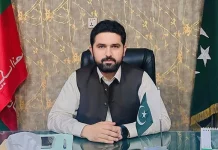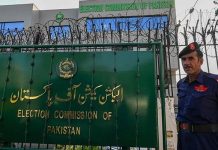Staff Report
ISLAMABAD: Prime Minister’s Special Representative on Religious Harmony and Pakistani Diaspora in Middle East and Muslim Countries, Hafiz Muhammad Tahir Mahmood Ashrafi Thursday said the Pakistani nation had expressed gratitude to the Kingdom of Saudi Arabia (KSA), the United Arab Emirates (UAE), and Kuwait for substantial support for Pakistan’s economic development, providing a much-needed boost during challenging times.
Talking to national and international media, he said Saudi Arabia, a longstanding ally, had not only reaffirmed its commitment to bilateral ties but had also extended the period of its deposits worth $3 billion for another year as it would help contribute significantly to Pakistan’s foreign exchange reserves, strengthening its economic foundation amid global uncertainties.
Ashrafi said the UAE, recognizing the shared economic interests, had engaged in groundbreaking multi-billion dollar deals across diverse sectors. He said these agreements, facilitated under the Special Investment Facilitation Council (SIFC), marked a strategic collaboration to foster economic stability and growth in Pakistan. He said the UAE’s commitment to these initiatives underscored its confidence in Pakistan’s potential as a key partner in the region.
Ashrafi said Kuwait, another key player in the Middle East, had joined the collective effort to support Pakistan’s economic uplift. He said the SIFC, under the transformative leadership of Chief of Army Staff (COAS) General Asim Munir and, Caretaker Prime Minister Anwaar-ul-Haq Kakar had played a pivotal role in attracting both local and foreign investments.
He said this innovative initiative would streamline processes, create a conducive business environment, and promote sustainable economic growth in the country. He said the recent multi-billion dollar deals with the UAE and Kuwait were a testament to the success of the SIFC in fostering economic stability. Ashrafi lauded army chief’s steadfast commitment to maintaining law and order within the country.
The national security institutions, in a resolute response to orchestrated attempts aimed at sowing discord between the Pakistan Army and the nation, had proactively thwarted negative propaganda, reinforcing the unbreakable bonds between the military and the people, he added. He said the collaborative efforts of security and law enforcement agencies, and cyber-security units had played a significant role in identifying and neutralizing malicious campaigns that sought to undermine the trust and harmony shared between the Pakistan Army and the citizens.
Ashrafi who is also the chairman of Pakistan Ulema Council said the national security institutions made all-out efforts in foiling the nefarious designs of anti-state elements, particularly addressing concerns related to interfaith disharmony. He said the security agencies’ proactive measures had not only prevented potential conflicts but had also promoted unity and understanding among diverse religious communities. In response to a query regarding the Gaza crisis, he unequivocally affirmed that Pakistan had maintained a clear stance from the outset advocating for a two-state solution and envisioning Palestine as an independent and sovereign state, with Al-Quds as its capital. Concluding his talks, Ashrafi commended COAS General Asim Munir’s successful completion of first year in office, showcasing commendable achievements that had left an indelible mark on Pakistan’s domestic and international landscape. He said the army chief had been instrumental in bolstering fraternal and commercial bonds with key middle eastern nations, including KSA, UAE, and Kuwait. These diplomatic efforts had not only enhanced regional stability but also opened new avenues for economic cooperation and joint initiatives for Pakistan, he maintained.






